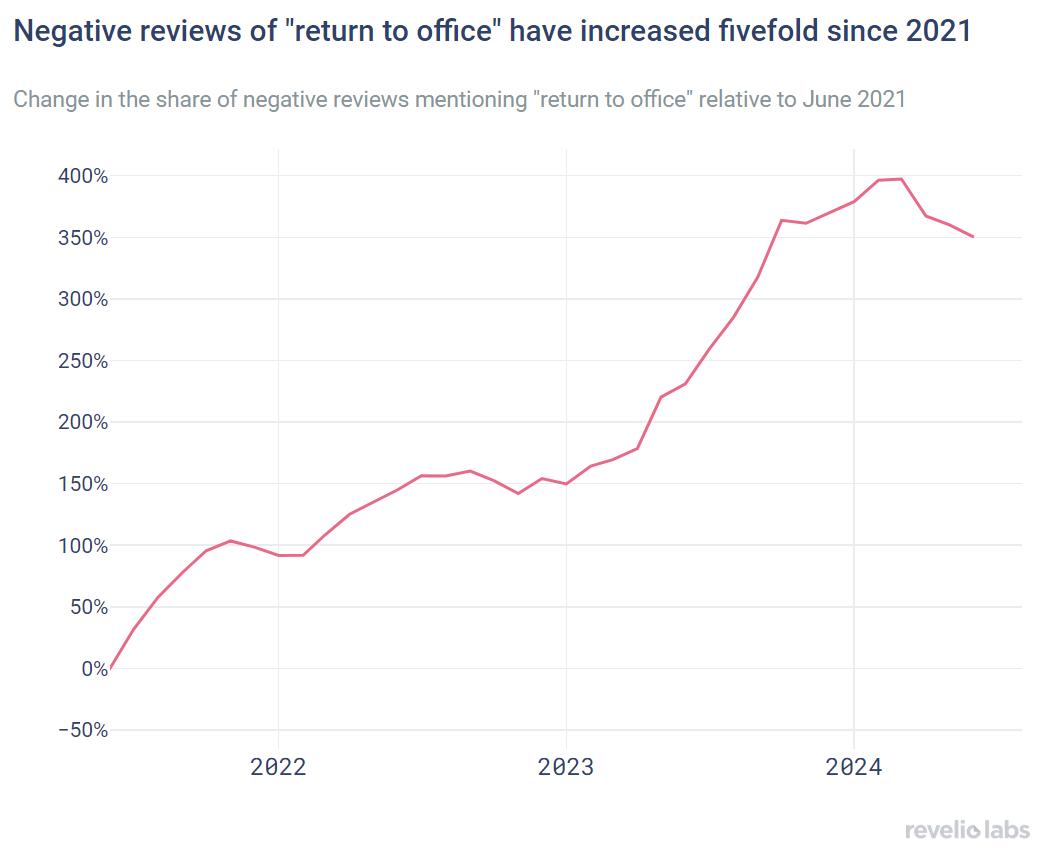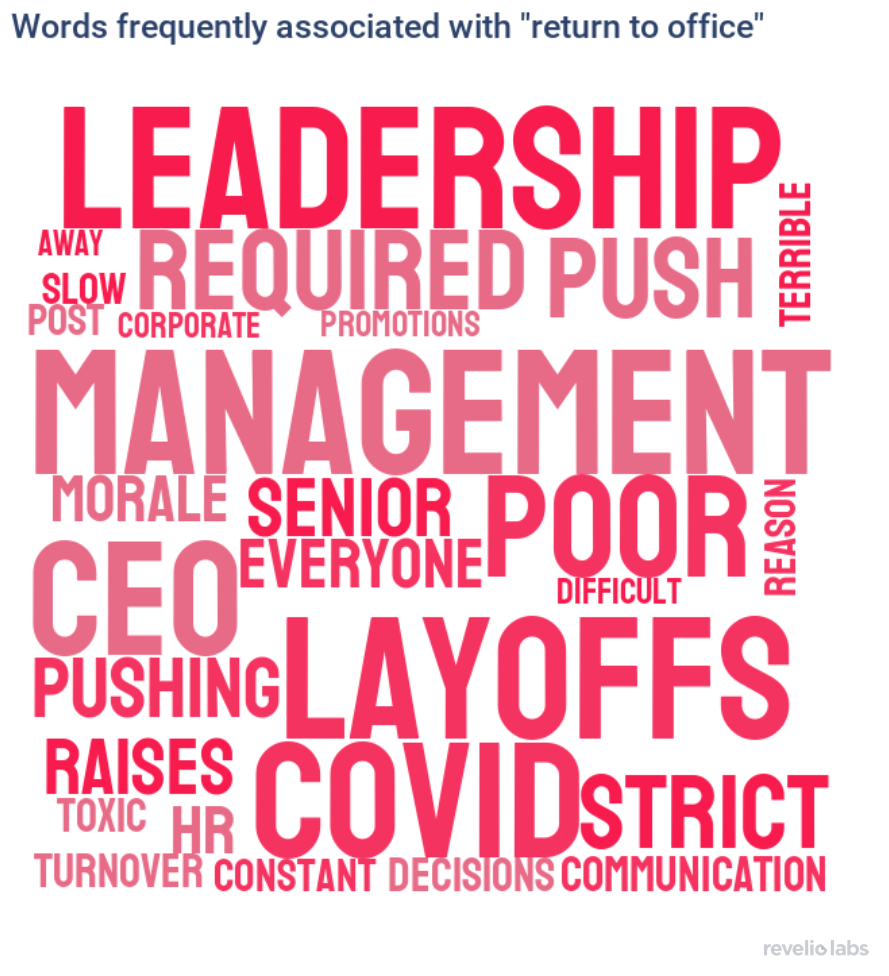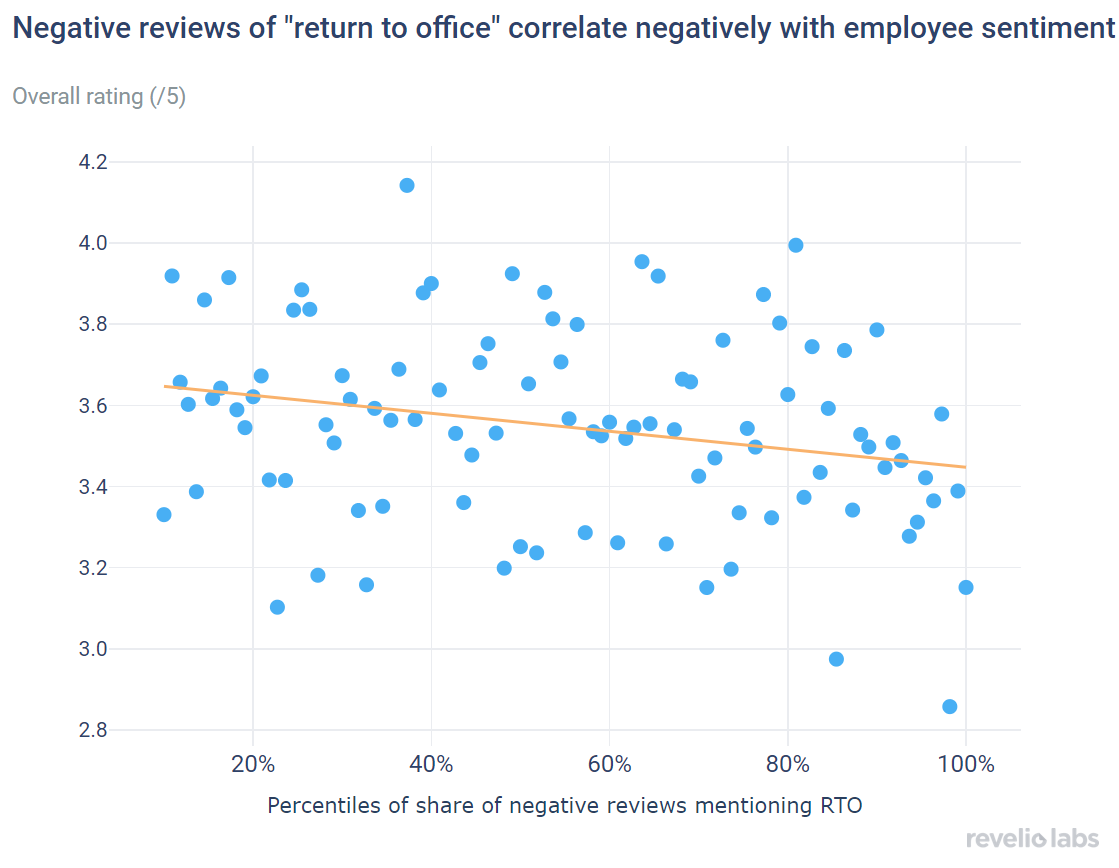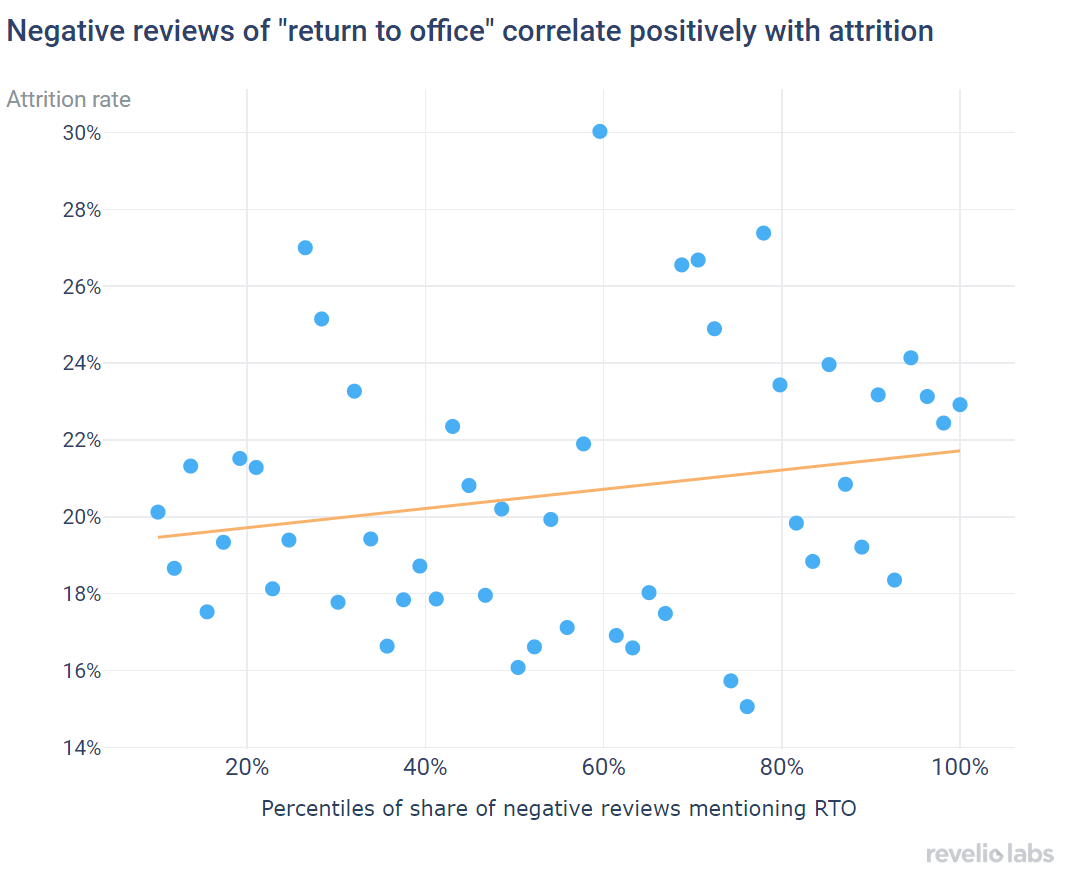How To Lose an Employee in 10 Days
RTO is bad for employee sentiment and attrition

Mentions of "return to office" in negative employee reviews have increased fivefold compared to June 2021. The reviews consistently attribute the RTO policy to company management.
Enforcing RTO policies is negatively correlated with overall employee sentiment.
RTO is correlated with higher attrition rates, echoing the view that companies use RTO policies as a way to increase voluntary turnover.
As companies re-evaluate office policies in a post-pandemic world, research shows remote and hybrid work offers a range of benefits, including increased productivity compared to office-based work. Reduced commute times, flexible schedules, and improved work-life balance can all contribute to increased employee productivity and satisfaction. Yet not all companies are believers in remote work. Many have recently been pushing for full return-to-office (RTO) policies arguing that in-person work facilitates collaboration, boosts innovation, and enhances team cohesion and company culture. These companies are facing significant resistance from employees who prefer the comfort of remote and hybrid work arrangements.
No wonder this is the case. We have previously shown that remote work is here to stay, as workers see the lack of a remote option as a significant downside, with in-person positions that are remote-suitable facing higher levels of attrition. This week, using Revelio Labs’ workforce data, we take a deeper look at the employee sentiment around RTO policies.
The negative sentiment around RTO is clearly reflected in our data. Mentions of "return to office" in negative employee reviews doubled between June 2021 and July 2022, as many companies adopted hybrid models. However, this trend has accelerated recently. As the push for RTO accelerated, mentions of "return to office" in negative employee reviews increased fivefold in February 2024 compared to June 2021.


A closer look at the negative employee reviews mentioning RTOs helps us understand the context in which they are mentioned. Many reviews blame "management" and "leadership" for the mandated return to office. Layoffs are also a major topic in these reviews, reflecting the claim that companies use RTO as a back channel for layoffs, in hopes that some employees will voluntarily quit, thereby avoiding the complications of formal layoffs.

Sign up for our newsletter
Our weekly data driven newsletter provides in-depth analysis of workforce trends and news, delivered straight to your inbox!
While employees might not like RTO policies, are there tangible consequences to enforcing them? We find a negative correlation between the share of negative employee reviews mentioning RTO and the overall sentiment score. For every percentile increase in the share of negative reviews mentioning RTO, overall sentiment decreases by 0.22 points.


We also find a positive correlation between the frequency of negative mentions of RTO in employee reviews and employee attrition. A ten percentile increase in the share of negative reviews mentioning RTO increases the attrition rate by about 3 percentage points. This is consistent with our previous analysis in which we have shown that in-person positions that can be done remotely tend to face higher levels of attrition, as well as the employee reviews linking RTO to layoffs.


Our previous research has shown the value of remote and flexible work arrangements, where possible, to boost employee morale and increase diversity. Companies with strong remote work options tend to attract and retain a wider range of talent, particularly females, as employees report higher work-life balance satisfaction. Mandating RTO policies not only risks reversing these gains but also fails to acknowledge the diverse needs and preferences of a modern workforce. Before implementing RTO policies, executives and managers need to think through the implications of such policies that can cost valuable talent across the board.


